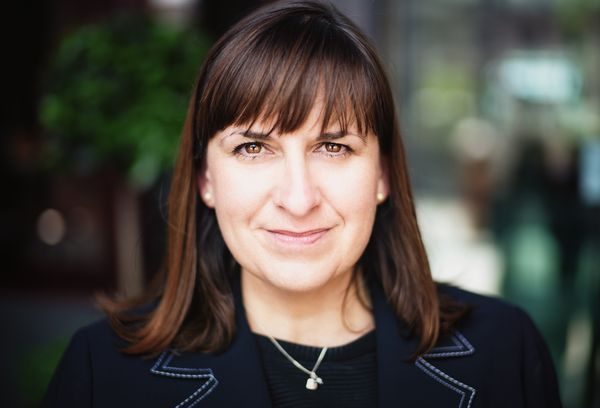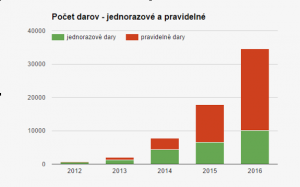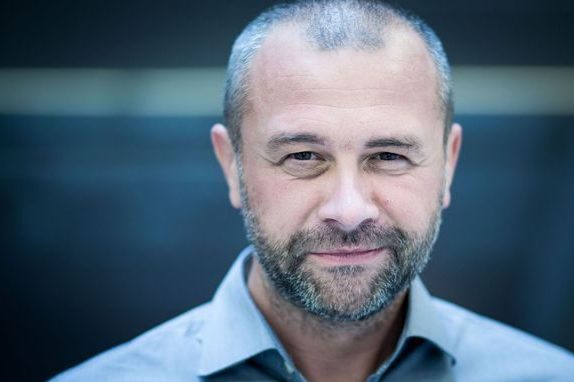
How to minimise risk when innovating
February 8, 2017
Expert View: Why are large charities scooping the funding pool?
April 19, 2017With no facility to donate by Direct Debit, the opportunity to develop regular giving has been near impossible for charities in Slovakia. Fundraising Europe interviews Eduard Marček, Chair of the Slovak Fundraising Centre about how online donation platforms are building public trust in charitable giving and generating regular reliable income streams.
[Fundraising Europe] Non-profit organisations are becoming increasingly reliant on individual giving in Slovakia. How do people typically give?
[Eduard Marček] Almost two decades ago nonprofits were heavily reliant on US private foundations, which played an important role in building civil society here in Slovakia. But many of those funders have now moved on and charities have had to find new sources of funding. Seeking gifts from the public has become much more important, recruitment of individual donors, major donor fundraising and crowdfunding have become increasingly popular.
Typically, people give to collection tins in the streets, by text donations and by allocating 2% of their income tax to charity (a local fundraising specificity). Regular bank transfers are little used. With no direct debit facility, face-to-face fundraising doesn’t really exist. People have to go to the bank to arrange their own bank transfers, so regular giving is very limited. However, Slovaks do pay online and so online giving is growing rapidly and is on track to take a clear lead soon.
How important have recent technological developments been in changing the way that people give?
As our lives become more digital and mobile, so do ways of supporting causes. Online tools and systems are enabling organisations to approach potential donors more easily, efficiently and in a more targeted way. And donors are benefitting from more convenient, quick and easy ways to support their favourite cause. This is impacting charities’ abilities to build and personalise relationships with supporters, helping to develop philanthropy and fundraising at the same time. We have seen some really successful digital fundraising campaigns like Brick (Tehlicka), which is run by a Salesian organisation SAVIO to support causes in Africa.
But the most successful fundraising organisation on the market is Good Angel (Dobry Anjel), which has raised more than €35 million over the past ten years to help families where a family member suffers from cancer.
How are giving habits changing?
Online giving has become a major trend in Slovakia, with four mainstream online donation platforms now on the market and three of those report more than 35,000 online donors giving an average donation of €20. The most universal portal, ĽudiaĽuďom raised over a million euros alone in 2016, up from around €750,000 in 2015. A growing number of nonprofit organisations use mobile pay systems like VIAMO.
Of the online platforms, Darujme.sk is one of the fastest growing, with the amount donated annually rising from €320,000 to €607,000 over the past year. It is a customisable giving portal that enables regular giving to more than 200 nonprofits. Darujme.sk allows payments not only through major credit/debit cards, but also through online banking systems of major banks and PayPal, through square and IBAN processing. More than 10,000 donors currently give via this portal.
The latest figures show that almost half of all donations are collected through this platform and 44% of the amount given via debit or credit cards. But the most important change is the growth in regular giving.
How is regular giving increasing and why is this so important?
Direct debit is still not working for nonprofit organisations in Slovakia, so the need to recruit regular donors has encouraged charities to turn to online fundraising. Through Darujme.sk, it has been so successful that regular giving now outweighs other gifts, with more than two-thirds of transactions coming from regular donations (shown in red in the graph below) and three in ten donors giving regularly.

Daujme Irregular (Green) vs Regular (Red) Donations
Those giving one-off donations gave an average of €44 over the year, whereas regular donors contributed €77. The overall amount raised through regular donations is, however, still smaller, but it is constantly growing from year to year.
What lies ahead? What are likely to be the next developments and how will they shape philanthropy in the nation?
Organisations are gaining more trust and experience with online fundraising. Most of the work in the field of online fundraising development is being done by the Centre for Philanthropy which run the portal Darujme.sk. They are also testing a new Salesforce CRM system tailored to meet the needs of nonprofits. And here at the Slovak Fundarising Centre, our focus is on educating fundraisers, delivering training and learning opportunities.
Online fundraising is a trend that will continue to grow and we expect to see increasingly positive results, with more organisations getting on board. New technological features that are due to be introduced shortly (such as a peer-to-peer giving module for Darujme.sk) will contribute to this boom and we are really positive about continued growth in the years ahead.
About Eduard Marček
Eduard has been working in the nonprofit sector since 1997, and has been involved in many consulting, research and capacity building projects. As a fundraising consultant he worked with a number of non-governmental organisations, domestic and international, and conducted or contributed to various analytical studies and networking initiatives across Central and Eastern Europe. He is particularly interested in fundraising for difficult causes, major gift fundraising and legacies. Eduard is a co-founder and chair of the Slovak Fundraising Centre and currently serves as a Vice-President of the European Fundraising Association.



